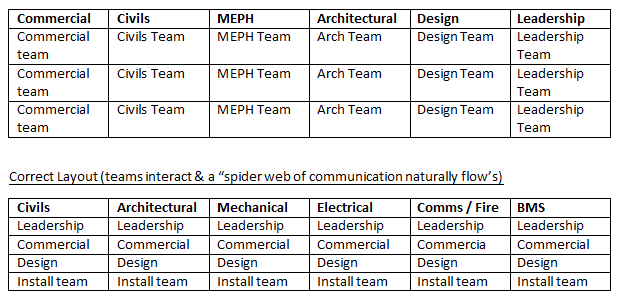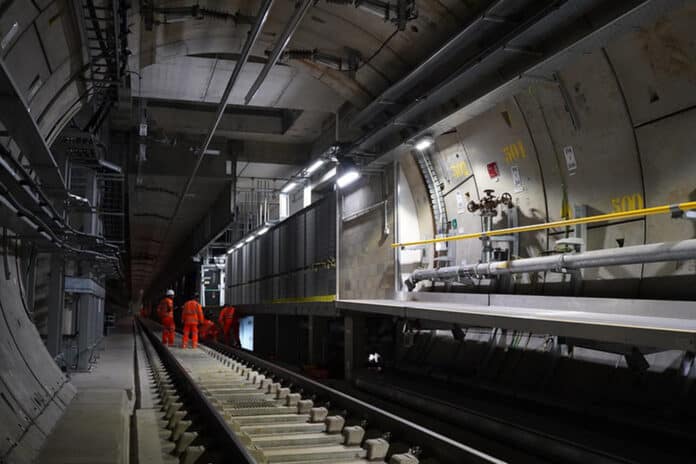Major construction projects have huge variants from company, client, specification, workforce, regulatory factors, supplier and contractors. Therefore, it’s certainly not uncommon for significant projects to go over budget and fail to meet programme milestones.
From the outside (public) perspective, there will be confusion, misunderstanding, frustration and in some cases, anger, particularly where public money is being spent without consequence. This spending spree and increased funding results in higher taxes.
When we consider modern technology, communication, exceptional talent, broad and niche skillsets, construction companies should be finding it easier to meet requirements and SLA’s.
So, why do construction companies overrun on budget & programme delivery?
There are several factors to consider, however they all lead back to the same common denominator – engaging and acquiring the right talent and teams from the outset.
IPMA Founder, Keith Mc Daid explains the importance of adopting the Right First Time approach.
Keeping projects on cost and to programme deliverables – Right First Time
The fundamental priority of project or programme planning should consist of reducing costs and establishing targeted contract milestones, taking time to evaluate various subcontractors, workforce, teams and individuals, whilst understanding the project scope and design. This will reinforce the ability to execute complex projects with greater control. Preparation is key, all of your early efforts will reap far greater financial benefits, protecting profits and controlling spend. Ultimately, profit is what all companies need to sustain growth, providing the ability to implement, influence and impact their values and ambitions to a global audience. Establishing the right workforce will help to achieve this business goal.
What happens if you don’t hire the right people?
Let’s assume a project has been estimated correctly, the programme is up to date and on target, and any design or scope changes are being managed effectively; well delays and cost are still incredibly likely to occur if the right people and teams are not implemented at the right time throughout the project.
In today’s world, mega project assurance and handover is as important as the installation of the job itself. This is also broken down into stages where areas or sub systems of major systems can be broken down into ‘bitesize chunks’. This is known as progressive assurance and certification. On several projects I have been drafted in to crisis manage a project from >50 per cent installation, with no assurance and certification completed (or what is already in place, is wrong). This in itself is justification for needing the right individuals and teams, essential for the early stages of projects.
I am a firm believer that whilst projects fall behind schedule for multiple reasons, they are only prevented or fixed by having the right people, teams, workforce and skillsets in place. Spending the time to implement the right workforce will hugely increase the chances of a project staying on cost and on budget, allowing the client and main contractor to retain control of the project.
Unfortunately, when hiring subcontractors, many general contractors do not adequately qualify their project teams. Irrespective of whether they are trying to work with the lowest bid or are leveraging existing relationships, using the wrong team exposes the general contractors to significant risk. General contractors that take extra steps to ensure subcontractor qualifications will always reduce the probability of experiencing significant overspending in construction.

The risk with inaccurate project appraisals
Each project has its own defined scope. Essentially, this establishes what works the client requires a contractor to complete, sometimes referred to as Works Information (WI). It is issued to the contractor with the contract and base design. Upon review of the project information, each contractor will place bids on the jobs and the client will then appoint and engage their chosen bid. The major issue with a bid-driven process is that the contracts are extremely competitive and are generally tendered in a ‘one size fits all’ capacity, not catering for the specific scope details that are captured from the outset. This allows for incorrect project costing and forecasting from the outset which leads to inaccurate programme durations and cost.
Preconstruction is one of the most important stages of the project life cycle, where the client and contractor set the tone for the project moving forwards. The investment here will pay dividends throughout the life cycle, particularly towards the end of the project (where remedial spend increases to rectify project shortfalls or failures). As a result, I would consider preconstruction just as important as the building phase for cost-saving.
On every project I have personally worked on, the repeat costly mistake is not having the right people at the right time to get the project done ‘Right First Time’.
Poor communication, poor business
This is the single most important element in a successful project. Having experienced some of the most complex global projects, I have found this a major issue on every project. Teams begin to fall into silos, where they are surrounded by the same discipline (e.g. designers with the design teams, commercial with the commercial team). Although this may sound familiar and correct, it is not. I have created a table below to show the wrong and right team layout.
Wrong Layout (teams are in silos)

Each block is its own discipline but is interlinked with each other, so when the commercial team have a meeting, they know the updates from all aspects of the job (as listed in the ‘correct’ table above) and are then able to utilise other department information and updates to create a wider understanding to his or her respective team.
To develop a project, accurate and timely communication should be present in all stages. The project leader needs lead from the top down, they should know exactly what is happening and when it is happening, via the project leadership team. Discipline specific team members need to communicate well among themselves to ensure that the teams on the cold face know what needs to be done and when it needs to be done by. Misunderstandings during planning and execution lead to tasks not being carried out properly. Correcting the situation can cause time delays and budget overruns. Colleagues should keep each other updated throughout the process to help projected timelines converge and keep unexpected costs to a minimum.
Critically, you must not forget the sub-contractors, no project would ever complete without these supporting companies. They achieve results and keep the project on track. Keeping the communication and information flow between sub-contractors and general contractors keeps the project up to date with the latest information.
The right people create this environment, promoting productivity, minimising hold ups and overspend.
And finally, incomplete design or design errors
In many cases, a lot of mega projects begin building while the job is still in the design stage, this means that elements of all systems may, or will not be complete and the installation teams are left with uncoordinated designs to deal with. In addition, what may work on software does not work in the physical world. These issues lead to substandard work and costly legal battles.
This type of major issue is avoidable in the early design stages, having vetted the correct people and using the right tools (software/site checks), the risk of major errors will be substantially reduced.
The full scope of works should be detailed in the contract and additional scope of works (WI), which will detail clear references to all specifications of the installation and design document. This will also detail an addendum to capture a process for unforeseen issues. The contract will have a clause for dispute resolution which may need to be acted upon if any unforeseen circumstances crop up. If the right people are dealing with this, working towards the same goal, there shouldn’t be anything unresolved, keeping good communication and updates between client and general contractor.
IPMA is a specialist consulting service, offering a unique ‘Right First Time’ approach.
For a complimentary assessment, please contact: Keith on 07960294921, email keith.mcdaid@ipmagroup.com or visit www.ipmagroup.com/services

Photo credit: Crossrail



































 0113 2082620
0113 2082620 info@railbusinessdaily.com
info@railbusinessdaily.com 15 Mariner Court, Wakefield WF4 3FL
15 Mariner Court, Wakefield WF4 3FL

